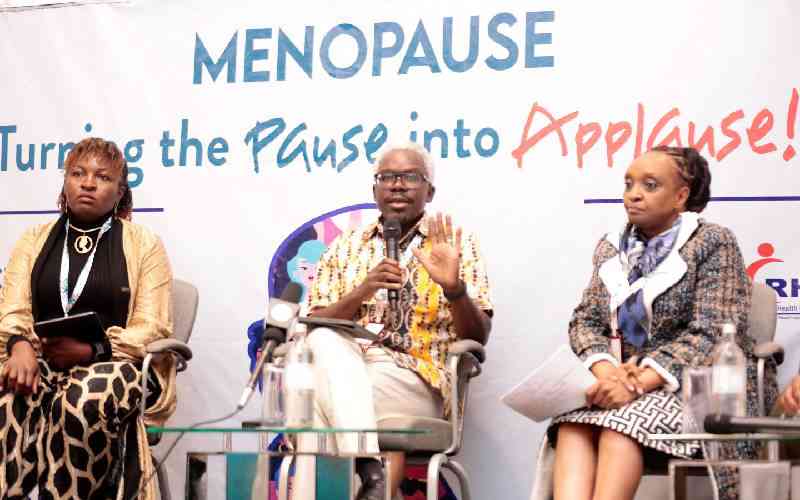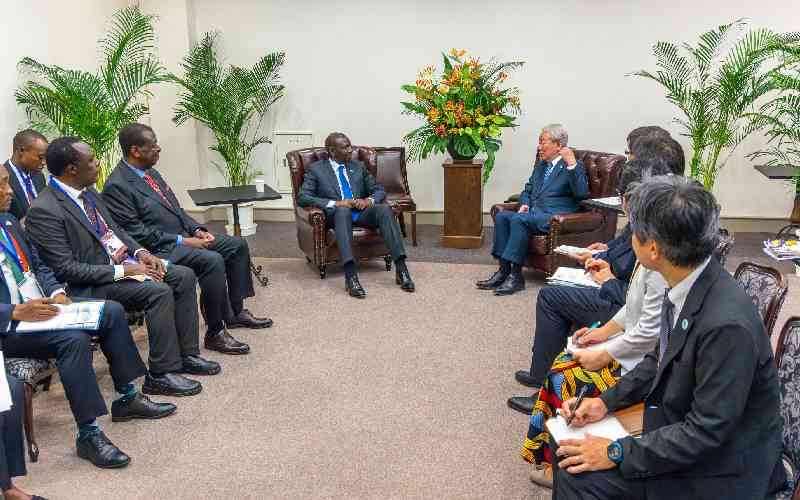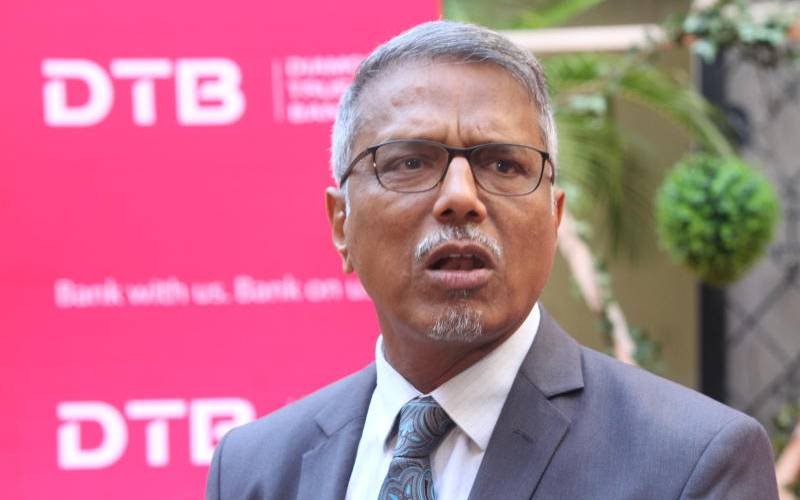
Health experts are calling on the government to develop a clear policy framework on menopause, including affordable hormone replacement therapy, routine screening, and integrated mental health services.
Speaking during the historic menopause conference, that menopause has been under discussed health issue for long, despite it impacting millions of Kenyan women, it remains shrouded in stigma, silence, and misinformation, particularly affecting women in rural areas, informal employment marginalised communities.
The event brought together women with lived experiences, health experts, policymakers, civil society, and private sector leaders to ignite a long-overdue national conversation on menopause. Themed “The Pause that Speaks: Voices, Policy and Action,” the conference sought to dismantle stigma, amplify women’s voices, and shape a policy framework to support millions of Kenyan women transitioning through menopause.
Supreme Court Judge Justice Njoki Ndung’u shared her journey, highlighting how memory lapses and health scares left her searching for answers.
“Doctors themselves are often not trained to prepare women for this stage of life. Menopause is not just a medical issue; it impacts family life, workplaces, and society at large. It is time we normalise it, just as we did with maternal health,” said Ndung`u.
Suba North MP and national assembly minority party whip Millie Odhiambo underscored the urgency of embedding menopause into Kenya’s health and workplace policies.
“Our Constitution guarantees women equality, dignity, and the right to fair labour practices. These protections must extend to women experiencing menopause,” she said.
On his part, Dr. Edward Serem, Head of the Division of Reproductive and Maternal Health, said the scale of neglect is staggering, with only 4 per cent of health budgets coverinwomen'sen health issues.
“Menopause is not just a private issue; it affects women daily and nightly, impacting health, productivity, and quality of life,” he said. “Yet most of our health facilities are not equipped to manage it properly, and treatment remains unaffordable for many women.”
He pointed to systemic gaps in funding and service delivery.
“Currently, only four per cent of health budgets go toward women’s health issues. That is shockingly low. We are facing a 1,300 per cent gap compared to what is required to meet actual needs. Unless we invest, women will continue to suffer in silence, “he warned.
Nelly Munyasia, Executive Director of the Reproductive Health Network Kenya (RHNK), called out the silence and neglect surrounding women’s health beyond childbearing, warning that millions of women are left to navigate menopause without guidance or support.
“Communities and health systems often do not prepare women for life stages beyond childbearing,” Munyasia said. “Many women are left to navigate big changes physically, mentally, and socially without information or support.
This silence around women’s health issues creates stigma, isolation, and suffering.”
Stay informed. Subscribe to our newsletter
Highlighting the challenges of menopause, Munyasia stressed that the transition is still shrouded in secrecy. “Menopause is often treated as something to be whispered about, rather than a natural stage of life,” she noted.
“Women are not prepared for it. No one tells them how their bodies and minds will change.”







